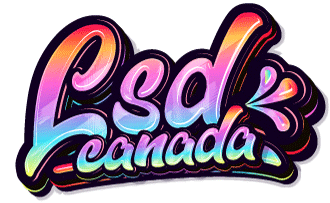In recent years, a quiet revolution has been brewing in the world of mental health. People who have long struggled with trauma, anxiety, and emotional blocks are beginning to explore an unconventional path toward healing: psychedelics, particularly LSD, in microdose or edible form. These mind-altering substances, once stigmatized and banned, are now at the center of scientific and therapeutic curiosity.
But can LSD edibles really help with trauma and anxiety? Could they offer what many refer to as an “emotional reset” — a way to release buried pain, reframe thought patterns, and finally feel relief? Let’s explore what science, psychology, and real-life experiences have to say.
Understanding LSD and the “Edible” Format
LSD (lysergic acid diethylamide) is a powerful psychedelic known for its ability to alter perception, mood, and thought processes. While traditionally taken as blotter tabs under the tongue, LSD is increasingly being infused into edible forms like chocolates, gummies, or capsules — especially in microdose quantities. This offers a discreet, controlled, and convenient method for those exploring its mental health benefits.
These edibles are typically microdosed — meaning only a tiny amount of LSD is included (usually 5 to 20 micrograms), far below the threshold needed to cause hallucinations. The goal isn’t to “trip,” but to experience subtle cognitive and emotional shifts that support healing.
Trauma and Anxiety: A Lock on the Brain
Trauma doesn’t just live in the mind — it affects the body, the nervous system, and even the way we perceive the world. People with unresolved trauma or chronic anxiety often experience:
-
Constant hypervigilance or fear
-
Emotional numbness or disconnection
-
Rigid thought loops and negative self-talk
-
Flashbacks or intrusive memories
Conventional treatments — therapy, medication, or meditation — can be effective, but not always. This is where psychedelic therapy enters the conversation.
How LSD Affects the Emotional Brain
LSD works by binding to serotonin receptors, especially the 5-HT2A receptor, which plays a key role in mood regulation, sensory perception, and cognition. But its emotional impact goes deeper:
-
Disrupting Negative Patterns
LSD may help people break out of repetitive thought loops, a hallmark of anxiety and trauma-related disorders. By temporarily loosening rigid brain circuits, LSD can make space for new insights and perspectives. -
Accessing Repressed Emotions
At therapeutic or sub-psychedelic doses, LSD may allow individuals to safely explore and process suppressed memories or emotions, often with a sense of detachment or clarity that would be harder to achieve in a normal state. -
Enhanced Emotional Openness
LSD has been shown to reduce activity in the brain’s default mode network (DMN) — the region associated with self-judgment and overthinking. This quieting of the “inner critic” can help individuals feel more emotionally open and connected, which is essential in trauma healing. -
Promoting Neuroplasticity
LSD may boost the brain’s ability to rewire itself — known as neuroplasticity. This means it could help form new, healthier emotional associations and beliefs in place of traumatic or anxious patterns.
What the Research Says
Though formal research into LSD for trauma and anxiety is still catching up (largely due to past legal restrictions), early findings are promising:
-
A 2022 Swiss study found that LSD-assisted therapy significantly reduced anxiety in patients with life-threatening illnesses.
-
Case reports and surveys suggest that individuals using microdoses of LSD report increased emotional resilience, reduced anxiety, and greater self-compassion.
-
Ongoing clinical trials are exploring LSD’s role in treating PTSD, end-of-life distress, and treatment-resistant depression.
Edibles: A Gentler Gateway?
Edibles offer a gradual, smoother onset compared to traditional LSD tabs. This can be particularly helpful for people dealing with emotional vulnerability, as the experience may feel less intense and more manageable. Microdosing via edibles allows users to work with the medicine over time — perhaps integrating small doses into a weekly or bi-weekly therapeutic routine.
However, dosage precision is critical. Taking too much can result in overwhelming emotions or destabilizing experiences — not ideal for someone processing trauma without support.
Risks and Warnings
LSD is not a magic cure, and it’s not right for everyone. Potential risks include:
-
Triggering latent psychosis in vulnerable individuals
-
Increased anxiety or paranoia at higher doses
-
Emotional overwhelm without proper therapeutic integration
-
Legal consequences, as LSD remains illegal in most countries
Self-medication without guidance can be risky, especially when dealing with deep-seated trauma. Ideally, LSD-assisted healing should occur in a therapeutic or clinical setting, with professionals trained in psychedelic integration.
Final Thoughts: Can LSD Edibles Offer an Emotional Reset?
For many, the idea of an emotional reset is about letting go of pain, seeing their story with new eyes, and reconnecting with life. While more research is needed, LSD edibles — particularly at microdoses — hold real potential to support this journey.
They are not a shortcut, but possibly a powerful companion to therapy, self-inquiry, and healing practices. If approached with respect, education, and intention, LSD edibles might just open the door to long-awaited emotional freedom.

